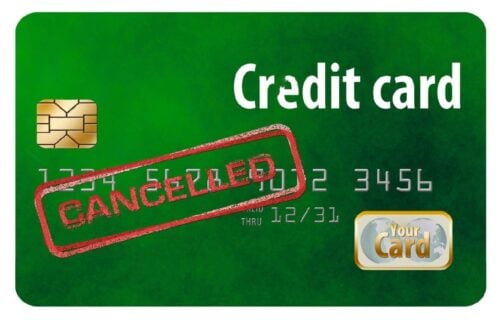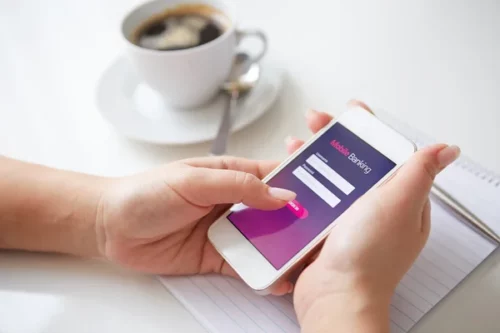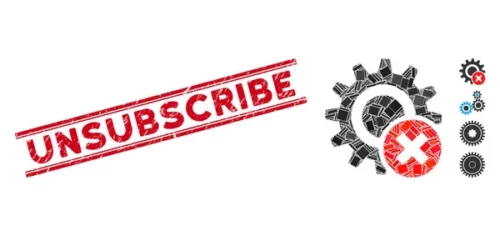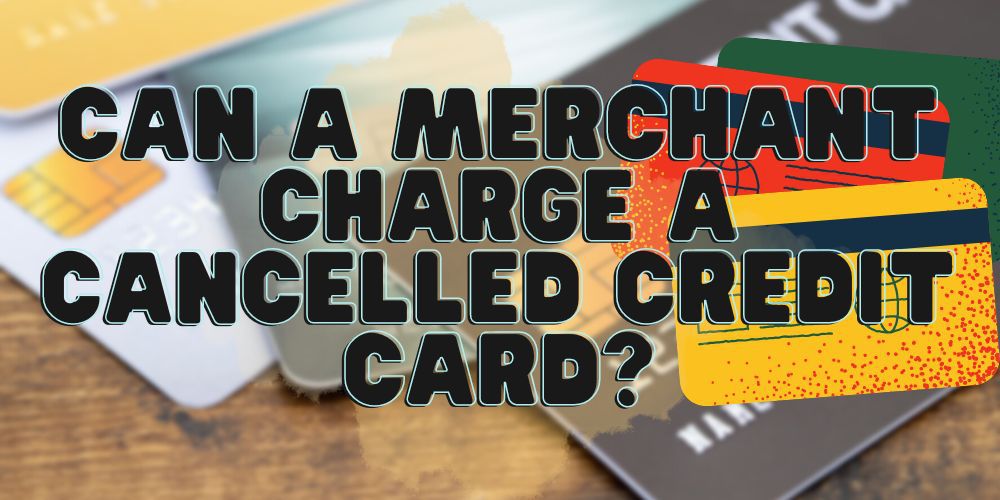If a recurring payment or outstanding instruction is active, are merchants allowed to charge a canceled credit card?
What if a refund is issued, and the card is no longer active? How can cardholders stop the transaction in such cases? We pored through the rules, and here is what came up.
Can a Merchant Charge a Canceled Credit Card?
If the bank canceled the credit card account, a merchant could not charge it. But if the cardholder did it, this may not be true.
For credit cards canceled by their issuers, pending charges cannot be applied.
Typically, such cancellations occur due to long-term non-payment or a breach of the terms of usage.
Hence, it does not make sense to let a merchant add on to the already unpaid amount.
But if the customer has done the cancellation, it is a different story.

The bank would not be actively looking to block anything. Moreover, it could take some time to update records.
Hence, it is advisable first to call up and redirect any upcoming charges to a different payment mode before closing it.
Lastly, please note that there is a difference between card cancellation and non-usage.
The latter does not mean automatic cancellation—the account will continue to exist until explicitly closed.
Be mindful of charges and fees on inactive cards. Otherwise, you could end up hurting your credit score.
Can They Refund a Closed Card?
Yes, a merchant will still process the refund to a card even if it has been closed.
Refunds usually cannot be applied to a different mode of payment.
So, there are two possibilities.
If the customer also has a debit card with the same bank, the amount would usually go to it.
However, if there is no other account, the money will stay pending with the card-issuing bank.
If this is the case, the customer can reach out to them to receive it.
To avoid such situations, the best option is to reach out to the business processing the refund.
They might be able to redirect the amount to a different mode of payment.
Otherwise, there is a long and arduous process to get the money back, which we explain below.
What Happens If You Buy Something with a Canceled Credit Card?
A refund issued on a canceled credit card will go to the bank that issued it.
Here is how to get the money back.
Is The Account Still Open?
For certain cases, such as loss of card or theft, a temporary cancellation does not imply the closure of the account.
It just means that the card will be reissued with a new number after all checks for identity theft.
In such cases, the money will simply reside in the same account and become available on the new card being issued.
Is The Online Account Still Active?
Despite the closure of the card, the internet banking login might continue to work for a few more days.

Banks do this so that customers can reconcile their data and receive their final statements and reports.
You might be able to check if the bank received the refund from here.
Account No Longer Available
If the card was closed some time back, logging into online banking may not be possible.
In such cases, request the merchant that issued the refund to share details of the transaction.
This would include the account where the money was deposited and an Acquirer Reference Number.
Requesting Refund from Bank
Provide the above information to the bank and request them to give you the amount via check.
This process can take a while, but usually, it should happen in seven to 14 days.
Confirm Back With The Merchant
If a month passes and the check is not issued, it might be best to talk to the merchant again.
It is possible that the transaction got rejected and sent back.
If so, contact customer care, and they will be able to confirm it.
In this case, you can ask the merchant to refund the amount via either reward points or issue a check in your name.
Will Canceling a Credit Card Stop Recurring Payments?
No, just because a card is canceled does not mean that the merchant account cannot continue to charge recurring fees.
Instead, the best way to stop a recurring payment is to cancel the subscription directly.
This can usually be done by calling up customer care or requesting it online on their website.

If this option does not pan out, you may ask the issuer to stop the pending transaction.
Simply reach out to the credit card’s customer care, and they will revoke your standing instruction.
It would be best to do this at least a week before the next due date. Otherwise, the upcoming payment might get deducted.
How Do I Stop a Vendor from Charging My Credit Card?
Simply instruct the credit card company to cancel the transaction.
They will reject the pending charge for you.
You are entitled to do so under the law. The instruction can be given via phone, email, or letter.
As long as it is done before the end of the day on the day before payment is due, the card issuer has to comply.
If they still do it, the charges will become an unauthorized transaction, as defined under the Fair Credit Billing Act.
You can then raise a dispute with the credit card issuer, which will need to investigate the claim within 90 days.
If its validity is held, the merchant will be liable to refund the amount.
Any interest or fees applied to it would also have to be paid back.
Moreover, a chargeback fee would be levied on them, which is usually a percentage of the amount deducted.
Do I Still Have to Pay a Closed Credit Card?
Yes, it is possible to close a card with a balance. But it does not mean that the amount won’t have to be paid back.
One might be tempted to do so if there were any fraudulent purchases on their card, which racked up a large balance.
But canceling simply stops the credit line available to the holder. Whatever payments are due will remain pending.

In some cases, it might be better to hold on to the card instead of closing it.
Doing this simply increases the utilization ratio because it reduces the available credit limit.
Moreover, it can also reduce the “age of credit” factor that impacts FICO scores.
Hence it is better to keep paying off the balance as much as possible and only close the card after the entire amount is returned.
Final Thoughts
Canceling a credit card will not automatically stop all payments on it.
It doesn’t relieve the cardholder from the responsibility of making contract payments either.
Similarly, any refunds that are issued to a closed credit card account will still go to your bank.
But getting this money back can be quite tedious, as we explained earlier.
Therefore the best policy is to always reconcile and close any pending transactions, recurring instructions, or outstanding payments before canceling a card.


 Tags:
Tags:










